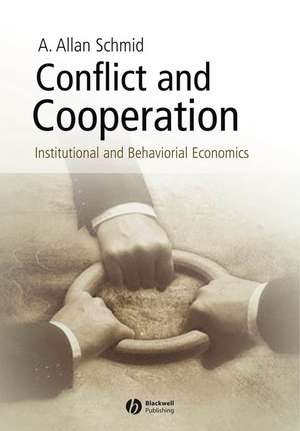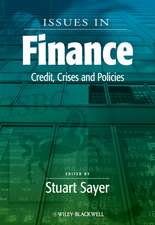Conflict and Cooperation
Autor AA Schmiden Limba Engleză Paperback – 26 apr 2004
With its broad applications and numerous practice and discussion questions, this text will appeal not only to students of economics, but also to those studying sociology, law, and political science.
Preț: 469.78 lei
Preț vechi: 510.64 lei
-8% Nou
Puncte Express: 705
Preț estimativ în valută:
89.90€ • 97.62$ • 75.52£
89.90€ • 97.62$ • 75.52£
Carte tipărită la comandă
Livrare economică 23 aprilie-07 mai
Preluare comenzi: 021 569.72.76
Specificații
ISBN-13: 9781405113564
ISBN-10: 1405113561
Pagini: 364
Dimensiuni: 177 x 243 x 19 mm
Greutate: 0.65 kg
Ediția:New.
Editura: Wiley
Locul publicării:Chichester, United Kingdom
ISBN-10: 1405113561
Pagini: 364
Dimensiuni: 177 x 243 x 19 mm
Greutate: 0.65 kg
Ediția:New.
Editura: Wiley
Locul publicării:Chichester, United Kingdom
Public țintă
upper–level undergraduate students in courses on behavioral and institutional economics; law & economics; experimental economics; economic theory; and political economyNotă biografică
A. Allan Schmid is University Distinguished Professor in the Department of Agricultural Economics at Michigan State University. He is the author of eight books, including Property, Power, and Public Choice (second edition, 1987), and Benefit-Cost Analysis: A Political Economy Approach (1989).
Descriere
* Addresses formal and informal institutions, the impact of alternative institutions, and institutional change and evolution. * Presents a framework open to changing preferences, bounded rationality, and evolution. * Explains how to form empirically testable hypotheses using experiments, case studies, and econometrics.









